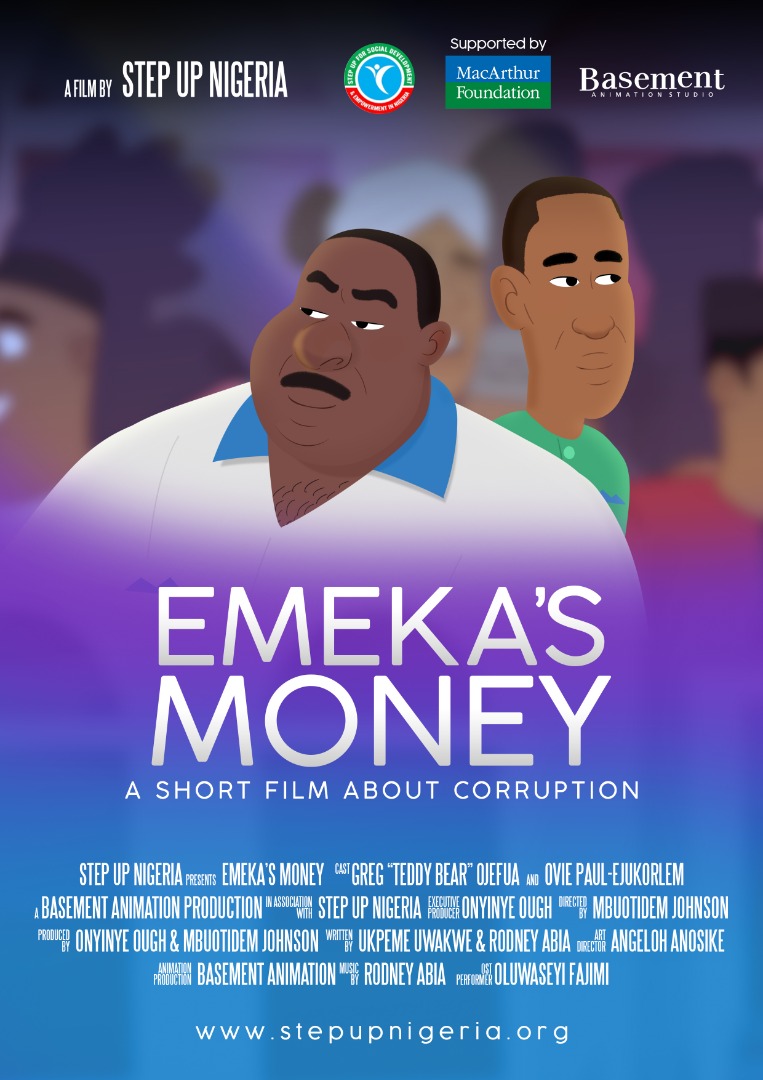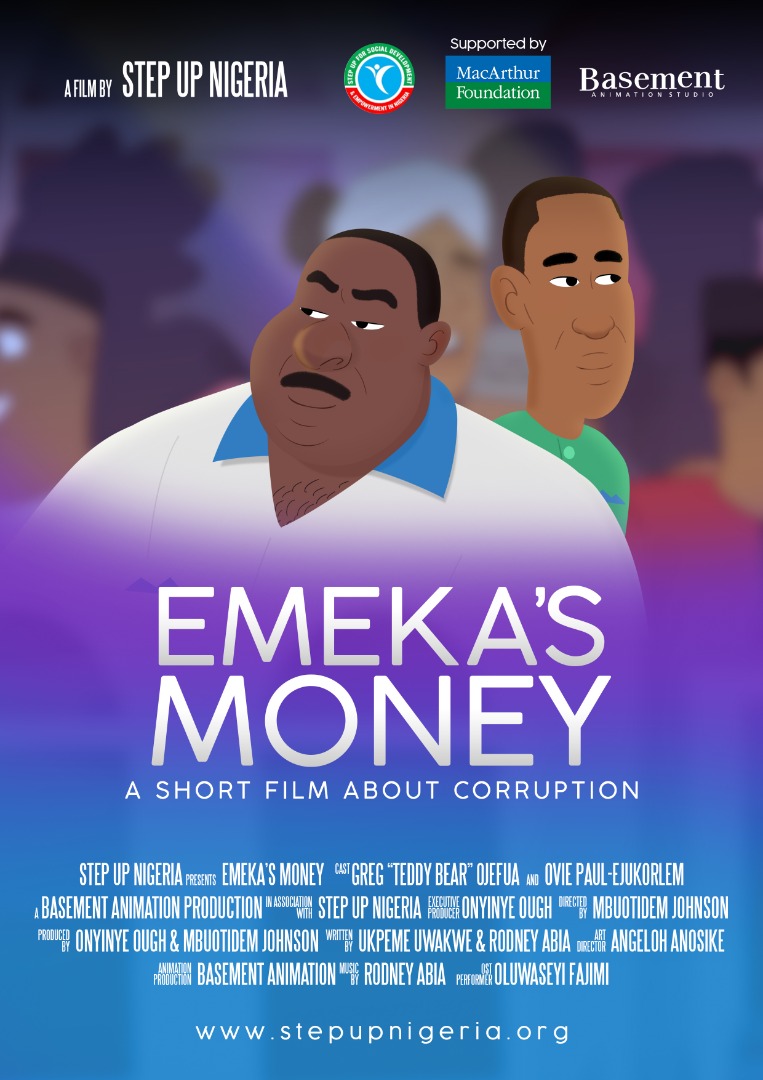Emeka& #39;s Money, an animated short film about corruption, premiered yesterday. Here& #39;s the YouTube link: https://youtu.be/LCehT8QOsXQ ">https://youtu.be/LCehT8QOs...
Though primarily for kids, I like the film a lot for some reasons. A short thread.
@Step_Up_Nigeria @BasementNG @macfound
Though primarily for kids, I like the film a lot for some reasons. A short thread.
@Step_Up_Nigeria @BasementNG @macfound
First, I like the idea of engaging kids about what is arguably the major problem of our country, corruption.
Socialisation is key.
And how best to break down the complex issue of corruption to the future generation other than through a simple, animated story? https://abs.twimg.com/emoji/v2/... draggable="false" alt="👌" title="Ok hand" aria-label="Emoji: Ok hand">
https://abs.twimg.com/emoji/v2/... draggable="false" alt="👌" title="Ok hand" aria-label="Emoji: Ok hand"> https://abs.twimg.com/emoji/v2/... draggable="false" alt="👍" title="Thumbs up" aria-label="Emoji: Thumbs up">
https://abs.twimg.com/emoji/v2/... draggable="false" alt="👍" title="Thumbs up" aria-label="Emoji: Thumbs up">
Socialisation is key.
And how best to break down the complex issue of corruption to the future generation other than through a simple, animated story?
Second, I like the idea of expanding the toolkit of those campaigning against corruption.
Important to always look for creative ways to create and expand the constituency against an endemic and persisting challenge.
The film does that: animation plus a soundtrack. https://abs.twimg.com/emoji/v2/... draggable="false" alt="👍" title="Thumbs up" aria-label="Emoji: Thumbs up">
https://abs.twimg.com/emoji/v2/... draggable="false" alt="👍" title="Thumbs up" aria-label="Emoji: Thumbs up"> https://abs.twimg.com/emoji/v2/... draggable="false" alt="👏" title="Applaus-Zeichen" aria-label="Emoji: Applaus-Zeichen">
https://abs.twimg.com/emoji/v2/... draggable="false" alt="👏" title="Applaus-Zeichen" aria-label="Emoji: Applaus-Zeichen">
Important to always look for creative ways to create and expand the constituency against an endemic and persisting challenge.
The film does that: animation plus a soundtrack.
Adults might pick issues with the simplistic resolution of the issue, but this is a film though primarily for kids but one that all age groups can enjoy and learn from. It is good & #39;edutainment& #39;. It should set off thinking and discussions. Another thing I like.
And this leads me to my greatest attraction to the film: this simple animated story highlights how values shape corrupt actions and how values are critical to sustainably combatting corruption.
Anti-corruption campaigns mostly concentrate efforts on putting in place systems that make it difficult for corruption to happen, and on sanctions to punish those guilty of corruption. Both are very important areas of work. But not enough.
Where least attention is paid and the most critical area is in understanding why corruption persists despite strong systems and strict sanctions.
This is the third S in the anti corruption toolkit: Society.
This is the realm of values and norms.
This is the third S in the anti corruption toolkit: Society.
This is the realm of values and norms.
Loosely defined, social norms are shared understanding of what is right and wrong or what is permitted, allowed, or even expected in a given context.
There are some widespread expectations in our society about public office/public resources that enable corruption.
There are some widespread expectations in our society about public office/public resources that enable corruption.
There are certain things that are frowned at in private dealings but are deemed permissible or even expected in public resources.
We have different values in public and private domains.
We have different values in public and private domains.
My favourite example of this compartmentalisation is that someone who disappears with money contributed by his friends or his community is deemed a thief while a public officer clearly living about his means is at best ignored or at worst envied and honoured.
Apart from being expected to help themselves, public officials are expected to bend the rules for their friends and families and communities. Beneficiaries are also expected to show them gratitude. Public officials who don& #39;t do that are deemed stupid and wicked.
But as the short film made clear, these expectations and entitlements inevitably lead to corrupt practices, which impose collective costs. Corruption is not a bloodless crime. We are worse off for it, including those enjoying temporary gains.
My congrats again to @OnyinyeOugh and her team at @Step_Up_Nigeria and to @BasementNG and @macfound for this film. May many more follow, especially in this area of addressing mindsets, which I believe is the MAJOR part of sustainably tackling corruption in our society.
END
END

 Read on Twitter
Read on Twitter



